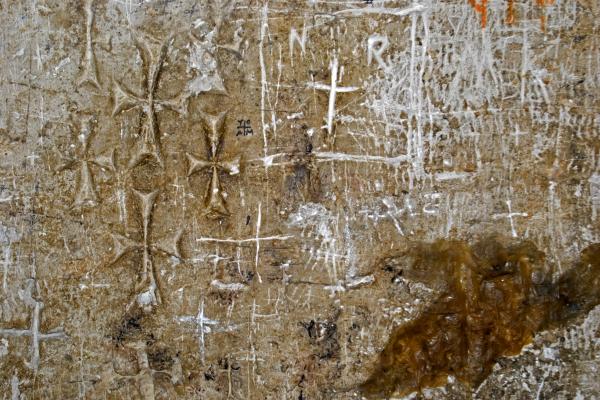When the Word becomes flesh, when the Son of God becomes one who bleeds, Jesus demonstrates God's humble solidarity with human nature from Adam and Eve onward, to the last person born in history.
This vulnerability of God for us, this identification of Jesus with our collective human frailty, changes our perspective on everything. In the light that shines from the face of Jesus Christ, we at last see God and humanity with 20/20 vision.
Paul comes to this vision late in the day, well after the events of God in the flesh that reconcile the Father to God's creation. The vision of Jesus blinds him but when his eyes are healed, having seen Jesus, he sees God and humanity and the world very differently than he did before the vision of Christ that overwhelms him.
Years later, in a letter to the Corinthians, speaking about the church's worship with blest eyes he writes: "When we drink from the cup we ask God to bless, isn't that sharing in the blood of Christ? When we eat the bread we break, isn't that sharing in the body of Christ?"
Read the Full Article

